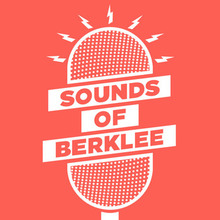Loading...
Episode Description
What does scientific data feel like? The composer David Ibbett helps answer that question. "The thing that boggles the mind is that we take it for granted. You know, we are not constantly amazed," says Ibbett, who heads up the Multiverse Concert Series(Opens in a new window) and teaches across several departments at Berklee, including Composition and Liberal Arts and Sciences. Combining orchestral and electronic elements, his compositions unlock the surprising layers of drama, foreboding, and hope hidden within the charts and figures that describe some of humanity's most significant discoveries. They bring a sense of wonder to the age of stunning scientific advancement we're living through. On this episode of our podcast, Sounds of Berklee, we dig into the process of turning science into sound through a technique called "sonification" (think visualization, but with sound instead of images), and of finding artistic inspiration within other disciplines. Listen to the conversation and check out an excerpt from the interview transcript (edited for length and clarity) below.
Producers
John Mirisola; Bryan Parys
Document Type
Podcast
Duration
30:18
Publication Date
4-19-2023
Excerpted Music
"Black Hole Symphony" (David Ibbett/Multiverse Concert Series); "Water Romanza" and "Romanza Acoustic" from Octave of Light (David Ibbett/Multiverse Concert Series, feat. Beth Sterling and Amelia Sie); "The Sound of Two Black Holes Colliding" (LIGO Observatory/Caltech/MIT).
Theme Music
Theme music by Sleeping Lion.
Recommended Citation
Ibbett, David, "What Does Science Sound Like?" (2023). Sounds of Berklee. 19.
https://remix.berklee.edu/sounds-of-berklee/19



Comments
Partial transcript available at: https://www.berklee.edu/berklee-now/news/what-does-science-sound-like